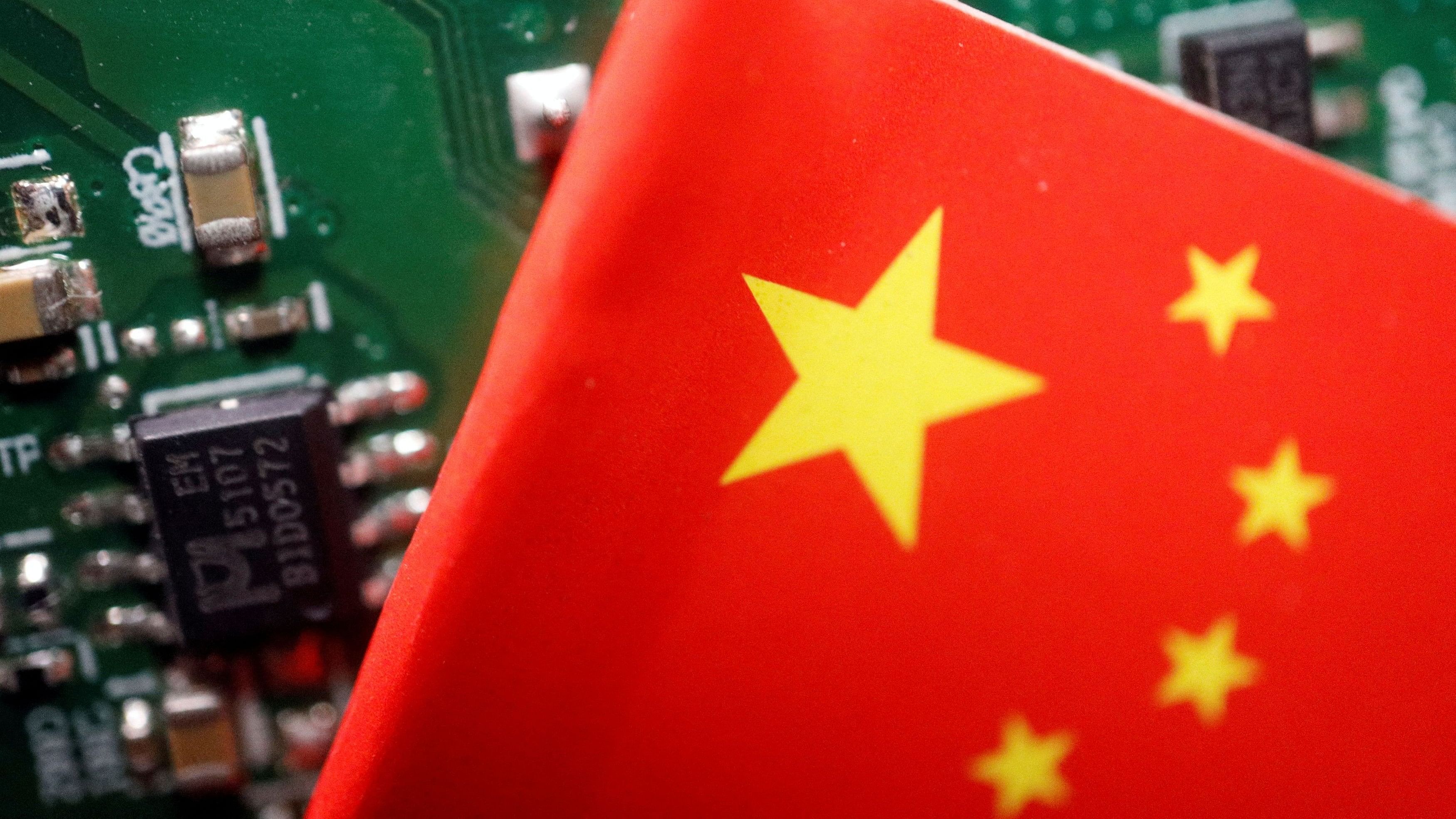
FILE PHOTO: A Chinese flag is displayed next to a "Made in China" sign seen on a printed circuit board with semiconductor chips.
Credit: Reuters Photo
China has never shied away from using its position as the largest miner of rare earth minerals for its larger foreign policy goals.
As per 2022 figures, China alone produced 70 per cent of the global share. The fact that it stopped the supply of rare earth minerals to Japan in 2010 as an attempt to push the Japanese to agree to Chinese terms is vivid in global memory.
Thus, no surprise that once again Beijing is attempting to leverage its position. From August 1, Beijing has decided to stop the supply of two crucial minerals (gallium and germanium), which are essential for the chip industry. China produces 60 per cent of germanium and 80 per cent of gallium, underscoring its centrality. These are also biproducts of other minerals. Now any exporter interested in trading in these minerals will need permit to ship these outside China.
This announcement is a reminder of what China is capable of. This development is directly linked to Beijing’s ambitions to develop the technological sphere, which has been a core agenda under President Xi Jinping. It is also a straight response to United States’ attempts to restrict Beijing’s access to chip manufacturing technology. The ongoing chip war between Beijing and Washington is intensifying with each side attempting to gain the maximum leverage.
Xi’s idea of rejuvenation of the Chinese nation is directly linked to Beijing’s technological development, and today it means having a stronghold in the chip industry. If China wants to move up the ladder of industrial development, having a functioning chip industry is crucial as it is also directly linked to advance in artificial intelligence (AI) too. China has been working towards developing its chip industry for the last few years, but even after investing billions of dollars the domestic industry has not managed to make any headway.
The Chinese argument has been that Beijing is free to undertake steps to strengthen its own national security. It appears that China is again ‘weaponising’ its position to push its agenda, and show to the world that without China the chip industry cannot function. The US imports almost 50 per cent of these minerals from China, further strengthening Beijing’s position.
China understands its position in the global supply chain of rare earth minerals, and the centrality of these minerals in the manufacturing of chip and semiconductors — two essential components in the mobiles, cars, computers, among others. Any restriction imposed by Beijing has the capacity to derail and disrupt the production. One witnessed a trend like this during the Covid-19 pandemic when the supply chains broke and chip manufacturing almost came to a halt.
This has been one of the drawbacks of the way globalisation has mutated over the last decades. It makes for countries to specialise in select areas and provide for the best possible outcome. However, it has also handed over tools to nations to hamper the growth of other countries, by restricting access to critical minerals and technologies.
Today, as it has always been, countries with superior technologies have access to the high seats of international order. Even though Beijing is the second-largest economy in the world it is still positioned as the producer of raw materials and a country where most of the products are assembled. China understands that to move up the ladder and genuinely hold the position of prominence it needs to be the developer and manufacturer of technologies and not just raw materials. The existing supply chains provide Beijing with a strong leverage, one which it is not shy from exploiting. If Beijing holds on to its promise of restricting the supply of these minerals the chip industry will face major hurdles.
For justification of such actions Beijing regularly asserts that it is trying to safeguard its national security. The current developments can be seen as a direct retaliation to the US actions. Beijing understands that technology manufacturing cannot happen without the materials which it produces in very challenging and difficult environments. This also underscores that China will use every arrow in its quiver to hit its target.
(Gunjan Singh is Assistant Professor, OP Jindal Global University.)
Disclaimer: The views expressed above are the author's own. They do not necessarily reflect the views of DH.